The theory of change for Young Enterprise outlines why we are needed, what we are doing in practice and how we expect our activities to contribute to changing young people’s futures.
Having a theory of change helps us to define what we are seeking to achieve, how we can measure progress, as well as highlighting key enablers and barriers.
Using the theory of change as a guide, the evidence we collect through monitoring and evaluation helps us to understand what works best, why and how. This helps with decision-making and ensures our resources are used to maximise impact.
Theory of Change Infographic
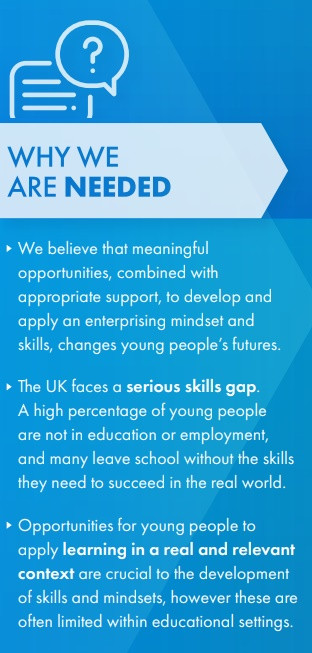
Young Enterprise has been operating for nearly 60 years built upon an enduring vision that every young person should have the opportunity to learn the vital skills and enterprising mindset needed to earn and look after their money and make a positive contribution to their community. After all of this time however, we are still needed more than ever.
Our impact and policy hub features extensive evidence of the many young people leaving full-time education without the important skills and mindsets that can only be gained through real world learning. Young Enterprise has the expertise, experience and resources to address these challenges and to ultimately help transform young people’s lives.
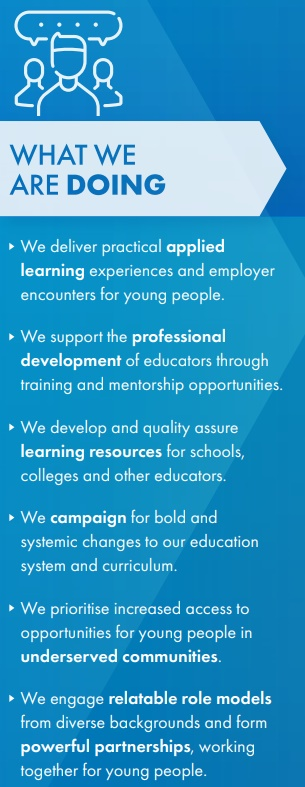
Young Enterprise’s suite of programmes and services covers enterprise education and financial education, and these are at the heart of our offer to young people, educators and education establishments. This includes in-depth courses like our longstanding Company Programme, as well as more targeted and shorter duration classes and lesson planning resources.
Young Enterprise is also highly active working with businesses, trusts, foundations and government on policy and fundraising, as well as engaging our valued alumni, business volunteers and marketing audiences, connecting relatable role models with young people. Together, we are more credible, have a more powerful voice and stand a better chance of achieving our collective goals.
Across all of our activities, we prioritise increased access to opportunities for young people living in underserved communities where our impact can be greatest.
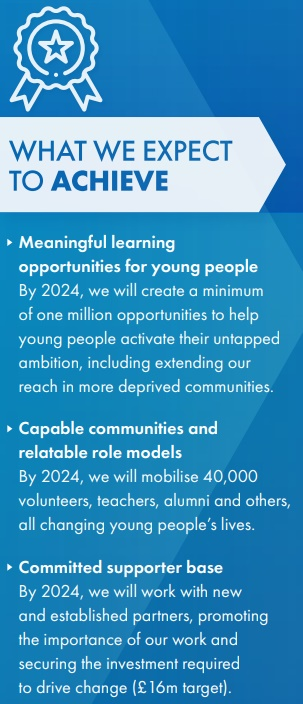
Our SMART goals are central to what we expect to achieve through our No Time Like The Future Strategy (2020-2023), building on Young Enterprise’s previous delivery, outreach and fundraising successes over the past six decades.
This part of the theory of change represents effects of our activities that are most tangible and directly measurable, for example, we have already reported our Year One progress in line with these goals.
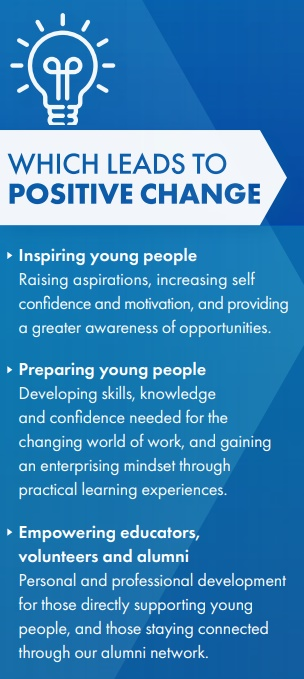
The theory of change allows us to trace all of our activities to achieving positive change among young people, as well as educators, business volunteers and alumni. These are the areas that are key to addressing the UK skills shortage challenge; areas where we have a strong track record of successful delivery.
We can demonstrate how our programmes and services help young people to develop across a range of measures, consistent with our financial and enterprise education frameworks, as well as having reporting in place for improved work readiness, volunteer and educator personal development, and alumni future pathways.
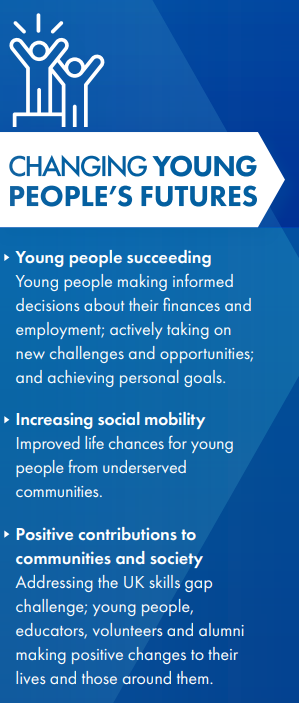
The final part of our theory of change refers back to why we are needed; contributing to improved futures for young people in the real world – putting their confidence, skills and mindsets into practice – which generates wider benefits for their friends, family, communities and society. This includes increasing social mobility through our prioritisation of working with underserved communities.
These impacts belong to the young people themselves and they are best placed to describe in their own words the role of Young Enterprise in helping them with their individual achievements. Over the past 60 years, we have an incredible bank of inspiring stories from our alumni that are testament to our work.